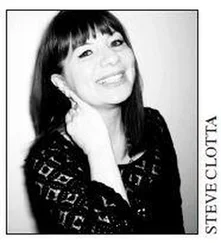1 ...6 7 8 10 11 12 ...18 She barked again.
“Right.” He climbed out and jerked a thumb. “Let’s roll.”
Shy leaped to the sidewalk. He half expected, half hoped she’d run. Run home. Run off. Anything to relieve him of this newfound responsibility.
She sat by his side.
Great.
New job. New life. New, and unwanted, complication.
In an effort to root himself, he scanned Main Street and assessed the area. No skyscrapers. No public transportation. No street vendors or homeless beggers. Just a scenic grid of two-story buildings, antique street lamps, and meter-free curbside parking.
Eden, Indiana.
Smalltown, U.S.A.
Four eateries: Pizza King, The Box Car, Boone’s Bar and Grill and Kerri’s Confections.
One grocery store. One hardware store. One barbershop, beauty salon, car dealership, car wash, Realtor, dollar store, library, shoe store and pharmacy/sundry. One convenience store—Circle K. One department store—Kmart. Two churches—both Protestant. Two gas stations and one bank. Two dentists. Two doctors. Two lawyers—one of those being his brother-in-law, Frank Cortez, or as Jack called him: the Cheating Bastard.
Jack shook off the thought of the man who made him see red. His numbness did not extend to TCB. He breathed in the crisp autumn air and a heady dose of Americana.
Considering where he’d spent the past several years, he felt as if he’d traveled back in time. Kylie was right. Eden hadn’t changed in decades. The storefronts looked exactly as they had when he’d been a kid. J.J.’s place still had a soda fountain. A red-and-white-striped barber pole spun outside Keystone’s and the Bixley still showed feature films at bargain prices.
Unlike Kylie, he found comfort in the familiar. Especially when the familiar included old-fashioned values. His CSI cynicism could use a dose of Leave It to Beaver innocence. Dog at his side, he strode toward the station house, soaking in the sunshine and breathing smog-free air.
To think he’d blown out of paradise the day after he’d graduated high school. He’d been hungry for purpose and action. Jessie had accused him of having superhero syndrome. She’d said it like it was a bad thing.
Turned out, she was right.
As soon as she stopped giving him the cold shoulder, he’d concede and give her a chance to say I told you so. At least it would mean they were talking.
He shoved aside thoughts of his sister. She wasn’t the only one’s favor he needed to gain. He needed to earn the respect of his new unit. A skeletal crew divided among three shifts for twenty-four-hour coverage. His second in command, Deputy Ed Ziffel, worked 7:00 a.m. to 3:00 p.m. Officer Andy Anderson covered the 3:00 p.m. to 11:00 p.m. The night shift belonged to Officer Bo Hooper. Dorothy Vine, their administrative assistant, pulled nine to five. Jack would float, working longer hours and where needed. He’d get to know the unit, but it would take time.
Prepared for the morning shift, Jack entered the station house along with the perky-eared, stink-ass dog.
Ed Ziffel sat at a dinged metal desk immersed in a book while devouring a powdery pastry. Ziffel had graduated high school two years behind Jack. They’d never been friends, but they weren’t enemies, either. After an hour in the man’s company yesterday, Jack knew why the town council hadn’t promoted from within. Some men are born to lead. Some…aren’t.
Jack cleared his throat.
Ziffel jerked his nose out of the book and brushed crumbs from his dark blue tie. He noted Jack’s attire. “Chief Curtis dressed in the official EPD uniform,” he said by way of a greeting.
“I know.” Part of the reason Jack had deviated. Dark blue Dutymax cargo pants and black LITESpeed running boots. He wore a white T-shirt under his tan polo shirt and a lightweight nylon blue jacket with Police embroidered on the right. His gold badge was clipped to his belt. His .40 caliber semiautomatic Glock was holstered at his hip. His headgear of choice—a blue ball cap—was embroidered with stark white letters: EPD.
His goal was to appear official yet approachable. According to the mayor, the former police chief had fallen out of touch with the populace. Burned out? Maybe. Probably. Christ. The man had been on the job thirty-five years. Shit happens.
Jack knew shit. He also knew people. He was an expert at reading personalities. An expert at blending. He could converse and connect with butchers, bakers and cold-blooded killers. His goal to bond with the citizens of Eden was both professional and personal.
“Guess you’re more comfortable in plainclothes seeing as you were a detective.”
Jack didn’t argue. He didn’t want to speak ill of Ben Curtis. He didn’t feel obliged to explain his clothes, though not official EPD attire, were in fact regulation. He took off his Oakleys, slid them into his inner jacket pocket. “Any activity I should know about?”
“Hooper got a call from dispatch at 2:31 a.m. Mrs. Carmichael reporting a possible break-in. Or vandalism. She swore someone was skulking around her house.”
The E911 Dispatch Center also dispatched calls to the Eden fire department, ambulance service, and to the animal control officer. Jack wondered how they kept up. Then again, this was Eden. They probably got four calls a day, total. “And?”
“Hooper drove out even though he knew he wouldn’t find any threat.”
Jack raised a brow.
“We get calls from the old woman at least once a week.”
“Regardless, Hooper investigated.”
“Bo Hooper’s a good man.”
“Didn’t mean to imply otherwise.”
Ziffel pursed his lips, nodded.
Jack bypassed his office—a disorganized nightmare—and drifted toward a pot of freshly brewed coffee. Shy slinked along. “So what did Hooper find?”
Focused on a manila file, Ziffel grunted. “A tree branch scraping against her upstairs pane.”
“I remember Sally Carmichael,” Jack said as he filled a blue ceramic mug to the brim. “Sunday school teacher.”
“Retired now.”
“Married forever.”
“Until Harry died.”
“Now she’s widowed, alone. Skittish.”
“Starved for attention,” Ziffel added.
“Lonely.”
The man nodded. “That’s our take. Especially at night.”
“Anything else?”
“This town doesn’t see much action.” Ziffel cast a subtle line. “At least not the kind you’re used to.”
Jack didn’t take the bait. He sipped coffee.
Ziffel didn’t take the hint. He fished deeper. “Folks are speculating on why a gung-ho cop like you would ditch New York City—maybe the most exciting city in the whole U.S. of A.—for hum-drum Eden.”
In other words, he was the subject of town gossip. He wasn’t surprised. He did, however, want to douse speculation. “I burned out on big crime.”
“Oh.” Ziffel looked disappointed by the straightforward answer. No drama. No scandal. No dancing around the subject. “Burnout is common in high-stress, high-risk professions,” he said. “So instead of melting down, you transferred out of a toxic environment into a wholesome community. Smart.”
Jack saluted the man with his mug. “No place like home.”
Shy whimpered.
The deputy peered over his desk. He noted the mutt leaning against Jack’s leg, frowned. “You brought your dog to work?”
“She’s a stray. I’m her caretaker. Temporary.” Jack gestured from canine to deputy. “Shy, Ziffel. Ziffel, Shy.”
“You named her?”
“Had to call her something.”
Ziffel, a rail-thin man with a face only his mother—and wife—could love, drained his mug, then joined Jack for a refill. “Should’ve stuck with ‘Dog.’ Once you give an animal a name, you’ve made it personal.”
Читать дальше












